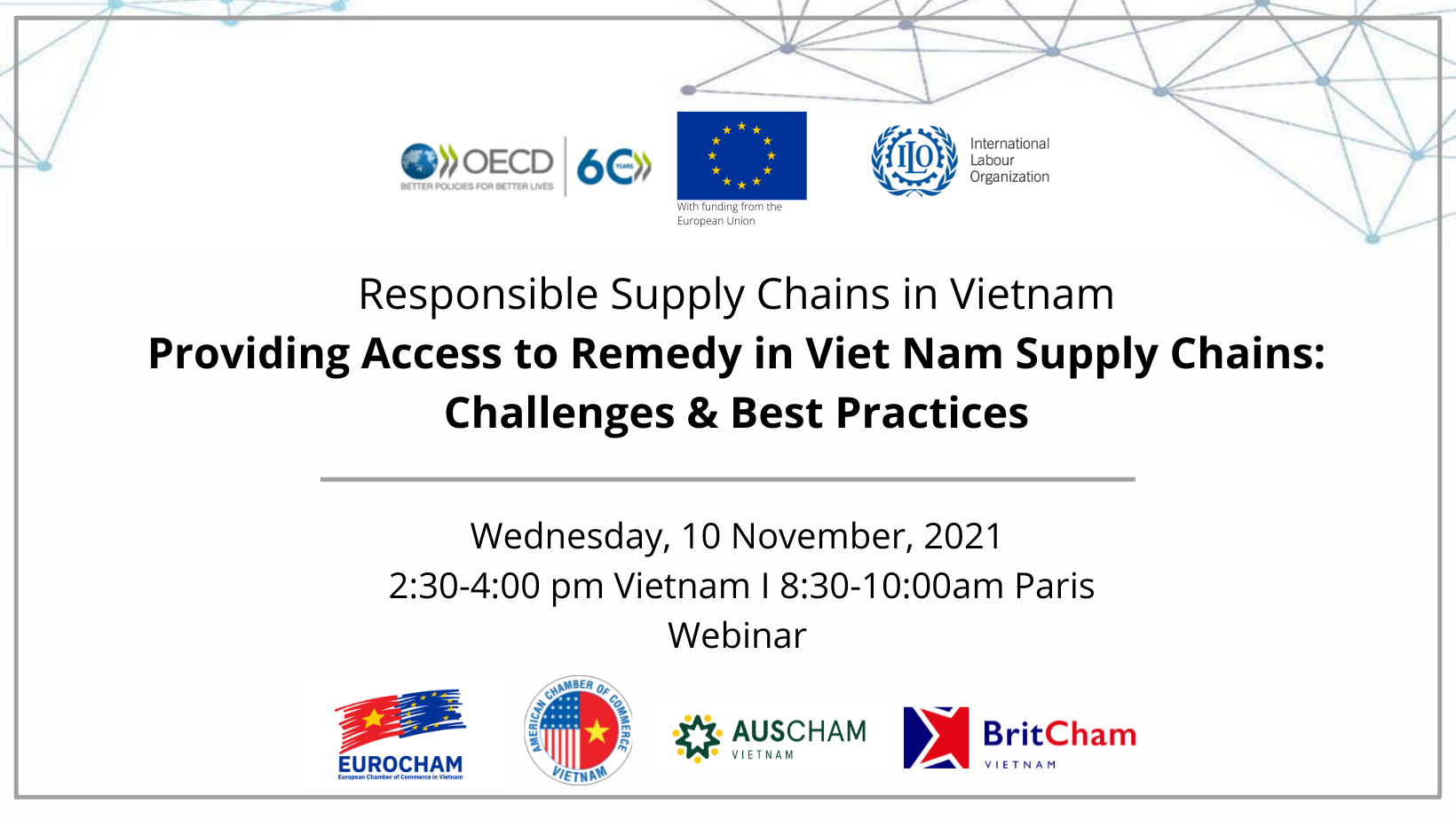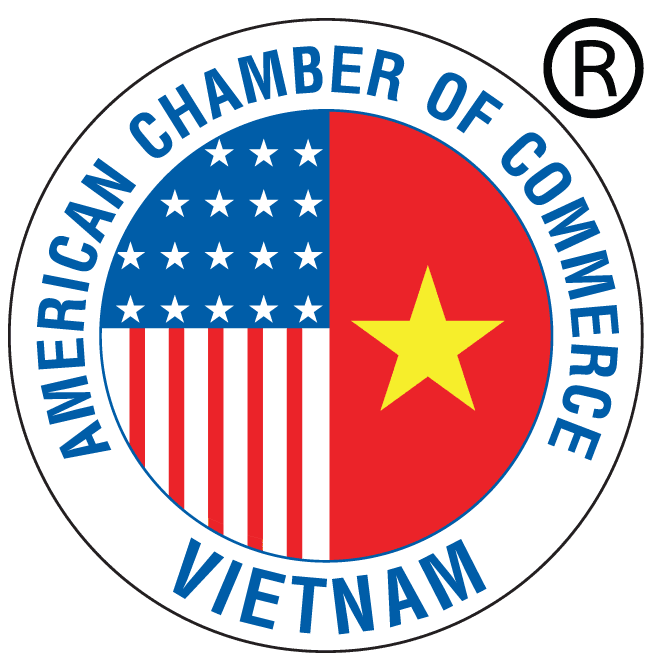
REGISTRATION GUIDELINE
| Virtual participation only. Please register to receive the Zoom link. |
Event Description
As part of the Responsible Supply Chains in Asia Programme, the OECD Centre for Responsible Business Conduct, in collaboration with EuroCham, AmCham, BritCham and AusCham, is holding a series of webinars responsible business conduct in Vietnamese supply chains.
The second webinar of the series “Providing Access to Remedy in Viet Nam Supply Chains” is bringing together experts, policymakers, business and CSOs to discuss how providing effective access to remedy can help strengthen resilience in supply chains by ensuring continuity and building trust between the different knots. The session will provide an overview of different mechanisms and channels to provide access to remedy – including operational-level grievance mechanisms, National Contact Points and digital tools. The webinar will include insights from organisations that have practical experience in implementing and monitoring grievance mechanisms or providing effective access to remedy for supply chains workers.
The webinar will be organised virtually for 1.5 hours, on, 10 November 2021, 2:30-4:00 PM Vietnam I 8:30-10:00 AM Paris. Vietnamese-English simultaneous interpretation will be available.
| 2:30pm – 3:30pm | Panel Discussion |
| 3:30pm – 4:00pm | Q & A |
| Free of charge |
| Ms. Do Quynh Chi, Director, Research Centre for Employment Relations (ERC)
Ms. Charline Daelman, Sr. Research & Development Expert, amfori Mr. Nicolas Hachez, Manager, National Contact Point Coordination, OECD Centre for RBC Ms. Aiko HIROSE, Director, OECD Division, Ministry of Foreign Affairs of Japan Mr. Jun Kitano, Sustainability Manager, Fast Retailing Ms. Chau Tran, Human Rights Due Dilligence Consultant and Supply Chain Consultant |
| Ensuring that those potentially affected by business activity have access to remedy is key to create accountability and promote responsible business conduct (RBC). The main international instruments on RBC such as the OECD Guidelines for Multinational Enterprises (the MNE Guidelines) and the UN Guiding Principles for Business and Human (1) (the UNGPs), recognise the role that both states and businesses can play in that regard. Countries adhering to the MNE Guidelines have an obligation to establish a National Contact Point (NCP) for RBC to further their effectiveness and resolve issues that may arise in case of alleged non-observance of the Guidelines(2).
The nature of global business operations, corporate structures and global value chains (GVCs) have made providing effective access to remedy complex, but essential. Stakeholders and businesses see the value of fostering accountability, transparency and trust across jurisdictions and throughout supply chains through appropriate grievance mechanisms. This is particularly true during COVID-19, when GVC disruptions have had severe adverse impacts on workers – sometimes due to ripple effects of business decisions trickling down the supply chains or otherwise as a consequence of poor health and safety risk management systems in factories. Since April 2021, Viet Nam has been facing its most serious wave of COVID-19 contaminations. It has been reported that while initially some factories was requested their employees to sleep on site to avoid production stoppage(3), strict lockdown measures, lack of access to social security packages, and fear over health risk have led to an estimated two million workers to migrate from Viet Nam’s southern industrial belt to the countryside, many lacking a source of income(4). The challenge facing Vietnam now is how to mobilizing this workforce in light of continuing challenges with the pandemic and rising labour demand in southern localities. Companies have a role to play in ensuring that their business decisions include considerations of access to remedy and access to appropriate grievance mechanism where warranted and according to international standards such as OECD MNE Guidelines and the UNGPs. This aspect of due diligence is also important as social unrest or lack of effective mechanism to address issues can have a lasting and further destabilising impact on the business environment and overall over resilience to future shock. On the other hand, providing effective remedy and access to grievance mechanisms can help build trust all along the supply chain and enhance supply chain continuity. There is no single way to provide access to remedy or to set up a grievance mechanism – it can take many forms: be state-based or non-state-based, judicial or non-judicial for example.(5) And while the COVID-19 and associated social distancing, travel restrictions and other constraints created extra challenges in providing effective access to remedy and implementing grievance channels – it remains essential that access to remedy respects “effectiveness criteria” of accessibility, transparency, accountability, impartiality, predictability and equitability.(6) It is thus important to maintain a continued access to appropriate, independent, and effective grievance mechanisms, including dedicated hotlines, email addresses, instant messaging systems or applications to the extent possible, during all phases of the pandemic. For example, NCPs as mentioned above are the only internationally recognised and state-based non-judicial grievance mechanisms on RBC issues. With a global reach and low barriers to access, NCPs have handled over 600 cases since their creation in 2000 and have been able to make significant contributions to access to remedy worldwide, often where no other mechanisms where available.(7) Click here for full concept note. (1) Access to remedy is one of three pillars of the UN Guiding Principles “Protect, Respect, Remedy” framework. |
